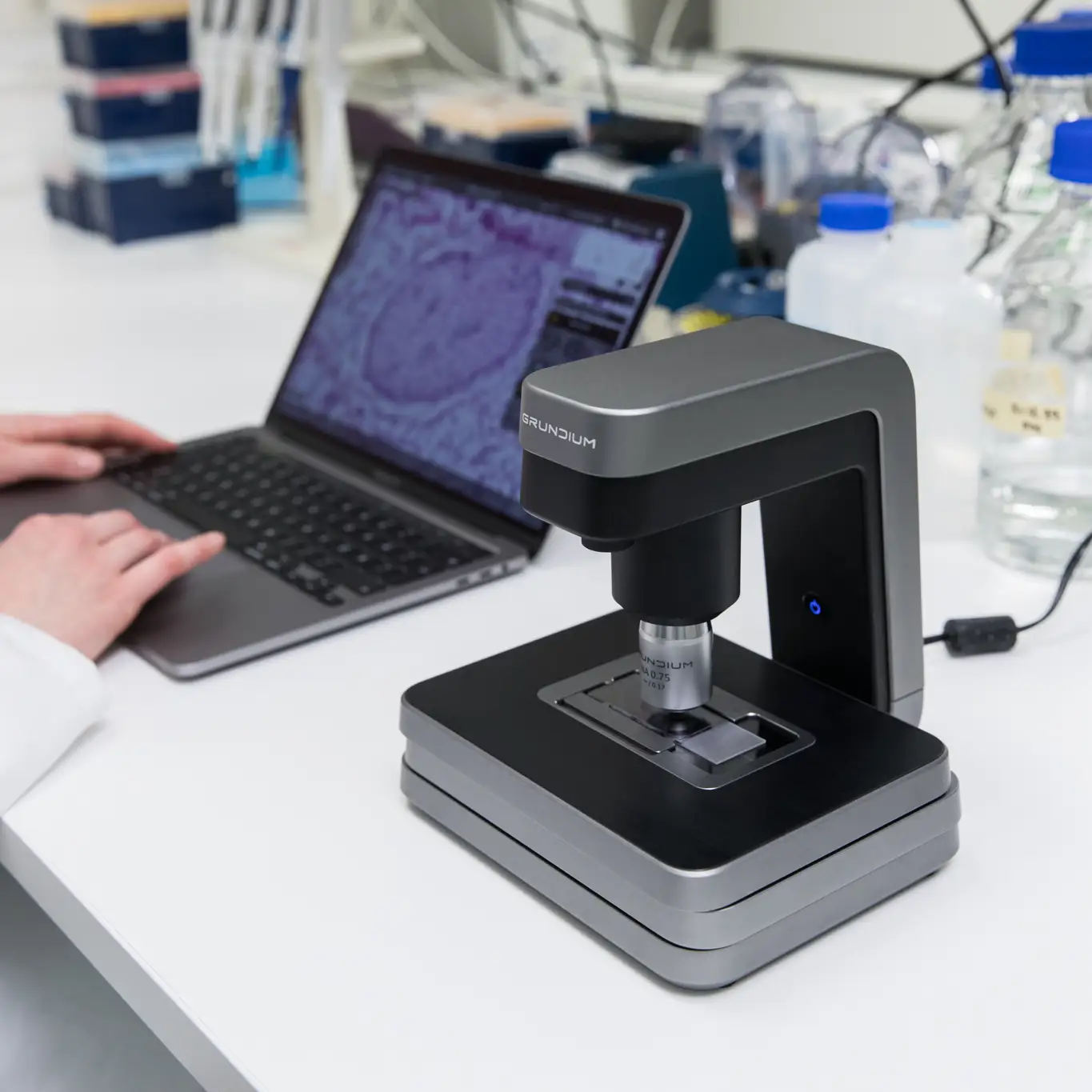
Digital pathology is a transformative approach in the field of pathology that involves the acquisition, management, sharing, and interpretation of pathology information in a digital environment. Grundium’s Ocus scanners are at the forefront of this revolution, leveraging advanced imaging, data management, and artificial intelligence (AI) to enhance the accuracy and efficiency of pathology practices.
Traditionally, pathology involved examining tissue samples under a microscope. Digital pathology, however, uses digital slide scanners like Grundium's Ocus® scanners to convert these samples into high-resolution digital images. These images can be viewed, analyzed, and shared electronically, providing numerous benefits over conventional methods and greatly enhancing the digital pathology workflow.


Grundium's Ocus scanners allow pathologists to easily share high-quality images, fostering improved collaboration and consultation, regardless of geographical location, a key advantage in digital pathology.

AI-powered tools, when used with the precise imaging from Ocus scanners, can assist in diagnosing diseases with higher accuracy by identifying patterns and anomalies that may be missed by the human eye.

The digital workflows facilitated by Ocus scanners streamline the pathology process, reducing the time required for diagnosis and improving overall lab efficiency, making digital pathology more efficient.

Digital pathology scanners often enable integration with other healthcare data systems, providing a comprehensive view of patient information and supporting better clinical decisions.

Digital slides are valuable resources for medical education and training, offering students and professionals access to a wide range of cases and pathological findings.
Digital pathology represents a significant advancement in medical science, offering enhanced accuracy, efficiency, and collaboration in pathology practices. As technology continues to evolve, digital pathology will play an increasingly vital role in improving patient outcomes and advancing medical research. Embracing this innovation is essential for healthcare providers looking to stay at the forefront of modern medicine.

